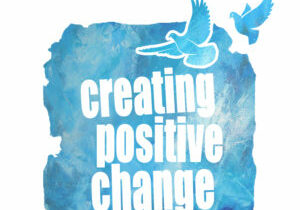Every child has a unique way of learning.
Dyslexia
Dyslexia: Dyslexia affects reading skills. People with dyslexia might have difficulty recognizing words, reading fluently, or spelling correctly. For instance, they might struggle to read a sentence smoothly. A child with dyslexia may struggle to read a storybook in class, stumble over words, and take longer to complete reading assignments compared to their peers. This can lead to frustration and lower self-esteem.
Dysgraphia
Dysgraphia: Dysgraphia pertains to writing difficulties. Individuals with dysgraphia may find it hard to write legibly or struggle with organizing thoughts on paper. Their writing might be messy and hard to read. A child with dysgraphia might find it challenging to take legible notes during lectures, leading to difficulty studying or reviewing class material later. Writing essays or completing written assignments could also be time-consuming and laborious.
Dyscalculia
Dyscalculia: Dyscalculia is related to math difficulties. People with dyscalculia might have trouble understanding mathematical concepts, performing calculations, or remembering math facts. For example, they could find it challenging to do simple addition or subtraction. In a math class, a child with dyscalculia may have trouble understanding multiplication or division concepts and might struggle with tasks like counting money or telling time. This can hinder their ability to keep up with math-related coursework.
Auditory Processing Disorder (APD)
Auditory Processing Disorder (APD): APD affects how the brain processes auditory information, making it challenging to understand spoken language. People with APD may have trouble following directions or distinguishing similar-sounding words. In a noisy classroom, a child with APD might have difficulty following the teacher's instructions or understanding spoken information. They may misinterpret directions or miss important details during lessons.
Visual Processing Disorder (VPD)
Visual Processing Disorder (VPD): VPD involves difficulties processing visual information. Individuals with VPD might struggle with tasks like recognizing shapes or reading maps accurately. In an art class, a child with VPD may struggle to recognize shapes and colors accurately, making it challenging to complete artistic tasks. They might also find it hard to interpret diagrams or maps in geography lessons.
Attention Deficit Hyperactivity Disorder (ADHD)
Attention-Deficit/Hyperactivity Disorder (ADHD): While not solely a learning disability, ADHD can impact a person's ability to focus and control impulses. People with ADHD may have difficulty paying attention in class or completing tasks. A child with ADHD might have trouble sitting still and focusing during lengthy lectures, leading to difficulties in absorbing information. They may also forget to complete homework assignments due to their distractibility.
Nonverbal Learning Disorder
Nonverbal Learning Disorder (NVLD): In social situations, a child with NVLD may have difficulty understanding nonverbal cues, like facial expressions or body language, making it challenging to interact with peers or teachers effectively. NVLD can affect social skills and spatial awareness. Individuals with NVLD may have trouble understanding nonverbal cues like body language and may find it challenging to navigate spatial environments.
Language Processing Disorder
Language Processing Disorder (LPD): LPD hinders the understanding of language. People with LPD may have difficulty comprehending spoken or written language, making it challenging to follow conversations or read and understand text. In language-based subjects like English or history, a child with LPD may struggle to comprehend complex sentences or remember the details of a historical event. They may find it challenging to summarize information from a textbook.

























